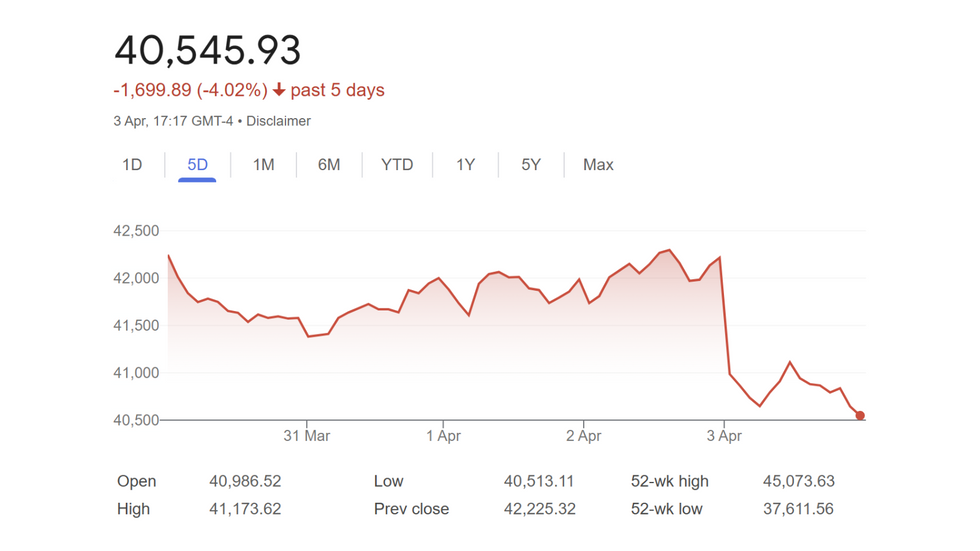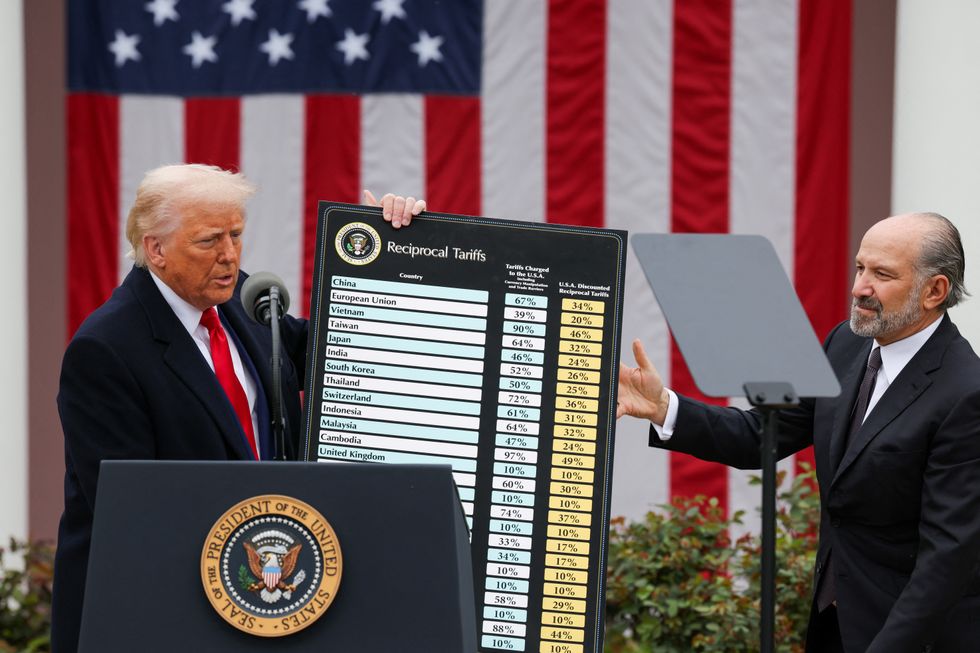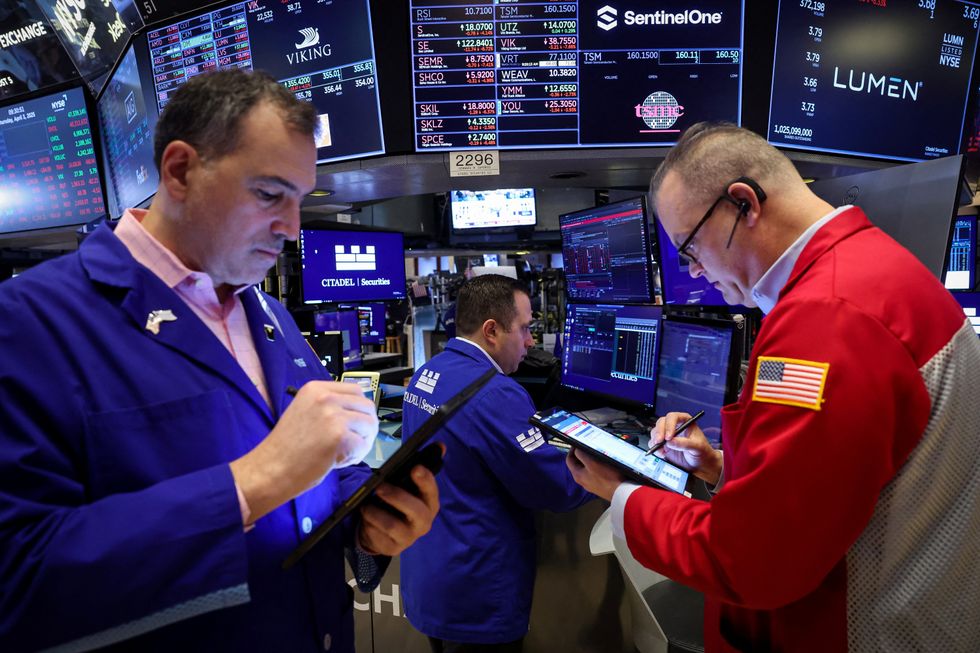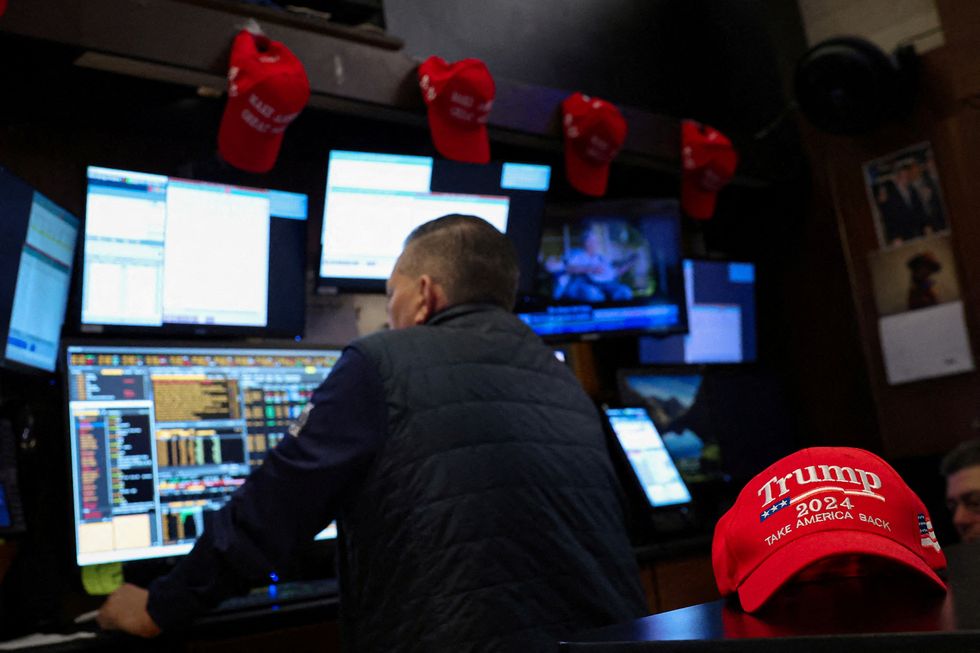WATCH: Starmer meets with business leaders to discuss Trump tariffs
GB NEWS
'This was the worst case scenario for tariffs', Mary Ann Bartels, chief investment strategist at Sanctuary Wealth said
Don't Miss
Most Read
Trending on GB News
Global markets plunged on Thursday after President Donald Trump unveiled his tariff onslaught, triggering fears of a global trade war.
The S&P 500 dropped 5 per cent, heading for its worst day since June 2020, the Dow Jones Industrial Average tumbled 1,630 points, or 3.9 per cent, and the Nasdaq Composite plummeted nearly 6 per cent - its biggest decline since March 2020.
Thursday's moves sent the S&P 500 to its lowest level since before Trump's election win in November, with nearly $2trillion wiped from the index.
The benchmark now sits about 12 per cent from its record close, back in February.

The Dow Jones Industrial Average tumbled 1,630 points, or 3.9 per cent, down from Thursday

Global markets plunged on Thursday after President Donald Trump unveiled his tariff onslaught
REUTERS
With Trump taking an axe to global trade, shares of multinational companies were hit particularly hard. Nike dropped 13 per cent and Apple fell 10 per cent.
Big sellers of imported goods suffered even more dramatic losses. Five Below lost 26 per cent, Dollar Tree tumbled 12 per cent, and Gap plunged 21 per cent.
Tech shares declined too - with Nvidia down 7 per cent and Tesla falling 5 per cent.
A baseline tariff rate of 10 per cent on all countries will take effect on April 5, with even higher duties to be charged in coming days against countries which levy higher rates on the US.
LATEST US MONEY UPDATES:

Shares in multinational companies were hit particularly hard, with Nike dropping 13 per cent and Apple fell 10 per cent
REUTERS
The effective tariff rate for China will now be 54 per cent when accounting for the new reciprocal rate and duties already levied against the country.
Trump said the implementation of tariffs was like "an operation, like when a patient gets operated on."
But the President also vowed: "The markets are going to boom. The stock is going to boom. The country is going to boom. And the rest of the world wants to see is there any way they can make a deal."
Traders had hoped that Trump's tariff plan would use a 10 or 20 per cent rate as a cap, not as a minimum starting point.

JPMorgan economists have warned that a recession is now likely if the new tariff rates are sustained
REUTERS
And JPMorgan economists have warned that a recession is now likely if the new tariff rates are sustained and not negotiated lower.
"This was the worst case scenario for tariffs and [they] were not priced into the markets, which is why we are seeing such a risk-off reaction," said Mary Ann Bartels, chief investment strategist at Sanctuary Wealth.
Investors instead turned to bonds in their search for safety - the benchmark 10-year Treasury yield nearly fell below 4 per cent as bond prices increased.








